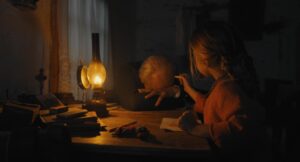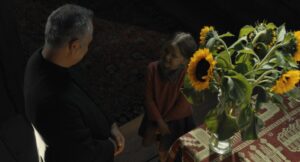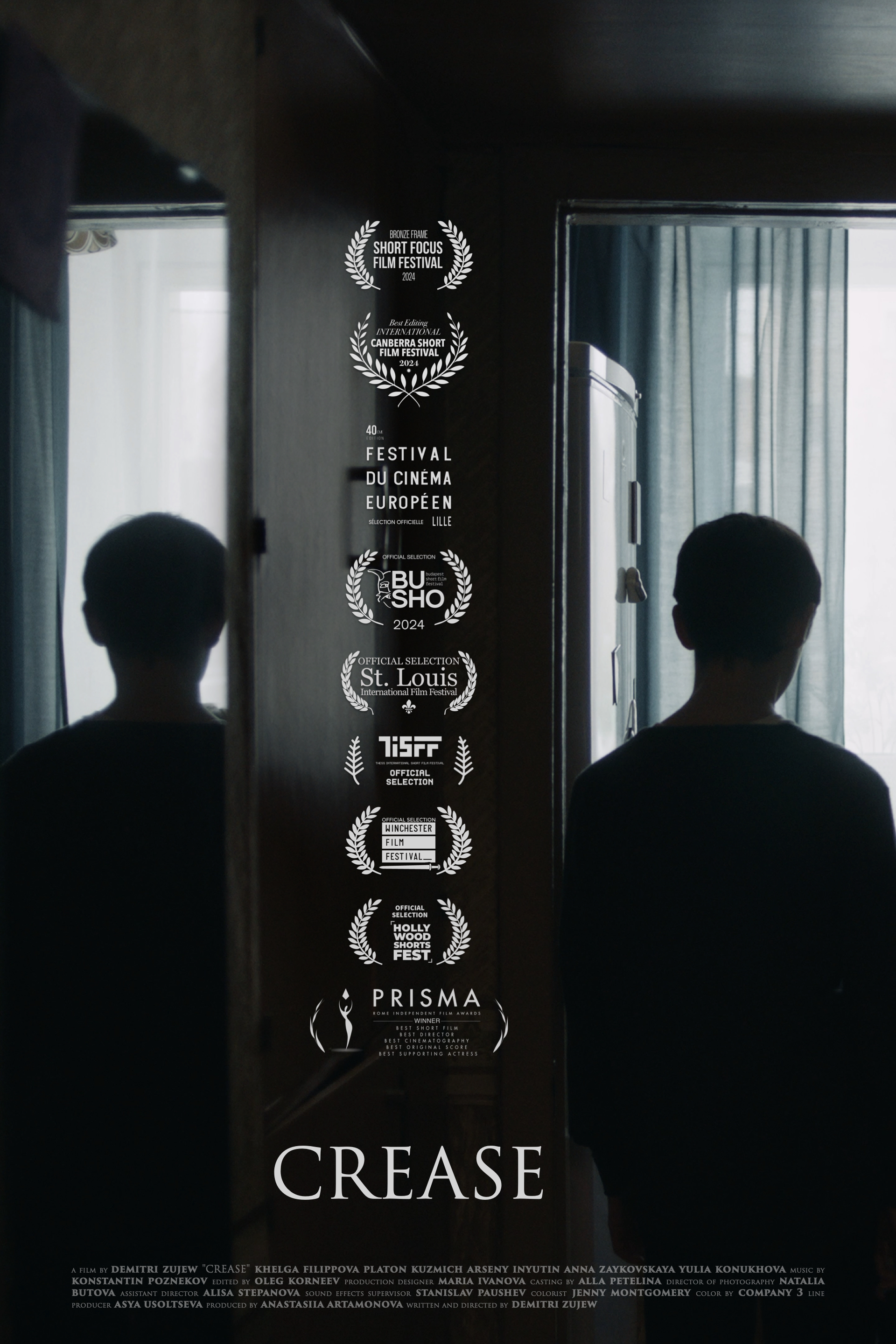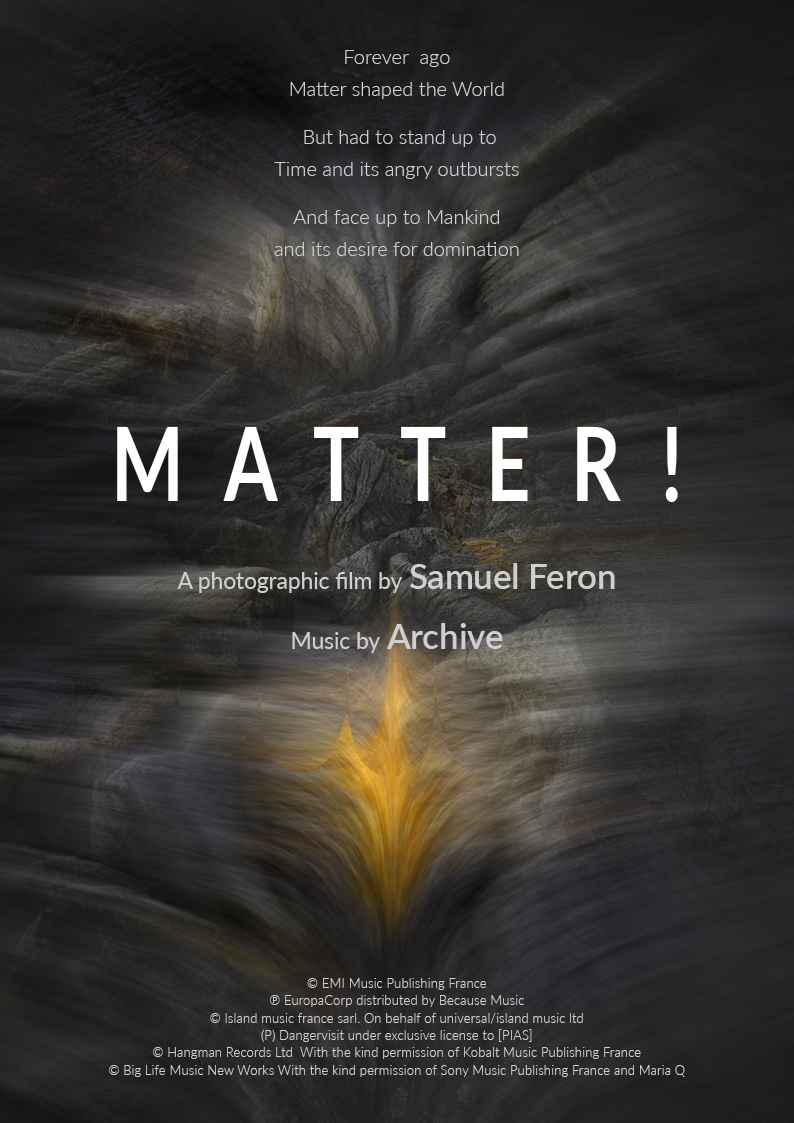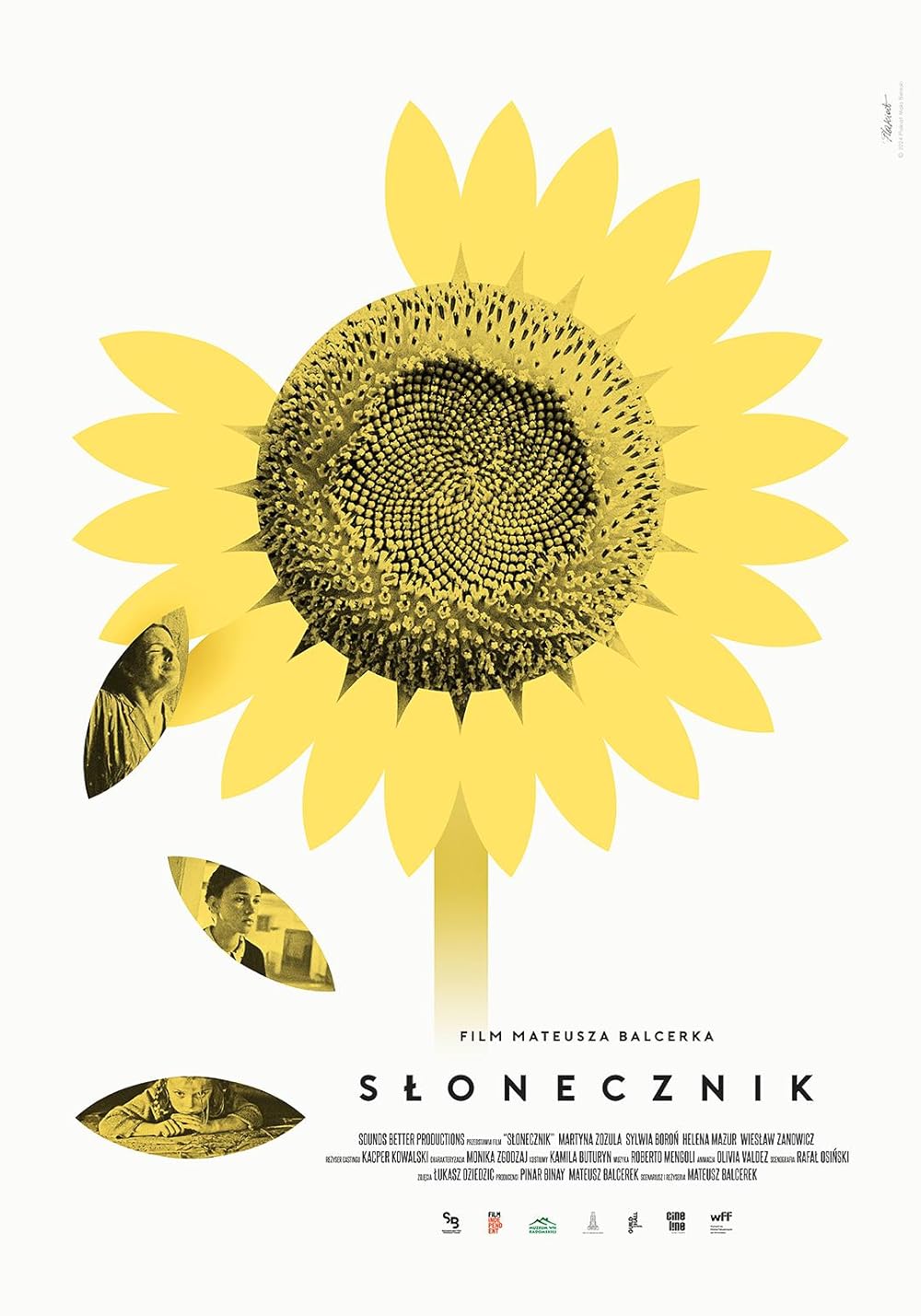
Oscar Qualifying Short Film Review “Sunflower”
WATCH THE TRAILER HERE
First, the Recap:
What prompts us to recollect? Whether we entertain memories that are good or bad, there are those things that serve as the catalysts to recall them. This may be especially assured when those elements cause us to discover needed comfort, more so when our present circumstances demand having a place to hide. When these times then resurface later on, will we once more turn to that which so adeptly guided us to feel safe? It is a time of war, and for a young girl named Danuta (Martyna Zozula), there is only one thing that seems to bring her solace–sunflowers. But, as the ominous dangers of occupying soldiers threaten her, her mother Alicja (Sylwia Boron), older sister Helena (Helena Mazur), and grandfather Antoni (Wieslaw Zanowicz), can a simple flower remain a feasible oasis for her?
Next, my Mind:
Once more, the unavoidable harshness of war and its devastating impact on those caught up in it rises to the surface with a different but no less impactful, wholly significant (and far more personal) approach through the Oscar qualified, 16-minute short film from writer/director/producer/editor Mateusz Balcerek and producer Pinar Binay. Real life is often the greatest source to manifest stories that both haunt and inspire. Here is no exception, as what we are viewing is based directly on the experiences of Balcerek’s own grandmother during World War II in Poland. With the abhorrent actions and manifestos brought about by Nazi leader Adolph Hitler during this world-encompassing conflict, the prices paid by all who became targets of his madness were legion, and how this film chooses to address this is raw, candid, and compelling, which it SHOULD be.
With its narrative following the younger days of Danuta Gorecka (the older, real life person acting as narrator for the film) as she faces the realities that war, on multiple levels, brings to her and her family plus the associated manner in which she attempted to deal with it, the film is quick and to the point, painting a portrait of deep familial bonds and the ruthless demeanor of the occupying forces they encountered in their small village. Additionally, there is the heartbreaking, transparently traumatic repercussions of witnessing war’s ugliness and violence, but in such a foundational, singular way–through the eyes of a child. It’s that loss of innocence and being encircled by events you have no control over or even ability to prevent that makes this perspective so conspicuously unnerving and anguishing.
However, even in the midst of such overt darkness, it is the flip side of this that provides the film its grander sense of intent in many respects, which is the notion of discovering that which allows you to find what’s required most IN times of total despair–HOPE. Likewise, it is also the requisite need for that which you can utilize to at minimum find peace and connection with the memories you retain, and that element is what makes the film’s title shine as brightly as the bloom it represents. Furthermore, the visually artistic employment of said flower within the context of the film’s narrative aids in enhancing the total relatability and most assuredly the empathy you feel towards the character of Danuta, made more potent by the fact this IS based on her actual life during this time. The film doesn’t shy away from the sheer, lasting, inward and outward desolation of war, but still manages to showcase there IS means of coping and release to be sought.
Having said all of this, the ONE facet of the overall film that is an enigma for this critic is that for everything we view, the undebatable strength of messages it delivers, and the completely understandable depth of personal history it represents, I found myself not TOTALLY immersed in the kind of emotional resonance I anticipated and/or expected. I truly am at a loss to be able to then describe in what WAY this was the case, I just felt like SOME layer of that dramatically emotive punch was missing for me. Again, this is NOT taking a SINGLE thing away from the story, the film, or any other aspect of it at ALL. It is a well-executed effort that I fully appreciate and most certainly have respect for given that we’re watching a director be very open and willing to depict his own family’s story for the world to watch and, frankly, judge. That alone I applaud Balcerek for and definitely encourage him to never lose that sense of purpose and drive in making films.
I continually maintain how, well, continually I am impressed by child actors, especially in more recent years and the constantly growing number of films I have had the opportunity to view. With this performance, it is an exercise in both quietly stewing and evidently energetic believability and confident composure that Zozula brings to her role as Danuta, a young girl thrust into the actualities, and atrocities, that war births as she plays out a daily cat-and-mouse game alongside her family with the soldiers occupying their village. Pressing into both real and self-drawn sunflowers that have since become a symbol of both remembrance and personal consolation, a brutally traumatizing act she experiences will test her young will’s limits as well as that of her family’s commitment to remain where they are, or face the more present truth of leaving all they’ve known.
There’s that mix of authentic charm and blatant heartache you feel for Danuta, and Zozula does a solidly endearing job at portraying this, I feel no small feat for a young actress having to evoke such fluctuating emotions. Boron portrays Danuta’s mother Alicja with an equally quiet but totally palpable fervor, solidly characterizing a woman on the edge, both entirely protective of her children and father but also defiant in her borderline stubbornness to NOT let the enemy take away the place they call home. Mazur also delivers a worthy performance as Danuta’s older sister Helena, who has her own deep-seated feelings and opinions about the course they should take, especially when tragedy comes knocking at their door. Zanowicz rounds out the primary roles through his turn as Danuta’s grandfather Antoni, a very doting and also insulating presence for his granddaughter, with a game they enjoy playing bringing about a moment that will alter her life forever.
Additional supporting turns arrive through Wojciech Billip as the village’s local priest who’s been attempting to do his best to get the family OUT of harm’s way in spite of Alicja’s dogged resistance, plus Filip Lipiecki and Kacper Zysk as a pair of soldiers who become the drastic impetus for the family’s decision whether to keep weathering the storm or leave their beloved village. So, in total, “Sunflower” is an undeniably formidable short film, tackling the horror of war, the extremes of mass prejudice against a whole, the definitive allegiance to family, and pressing into anything that allows us to preserve memory as well as encounter inner accord during a time when there is anything but, that there might be that lasting legacy we store away in the vault of our mind.
STAR RATING (out of 5):
As always, this is for your consideration and comment. Until next time, thank you for reading!
